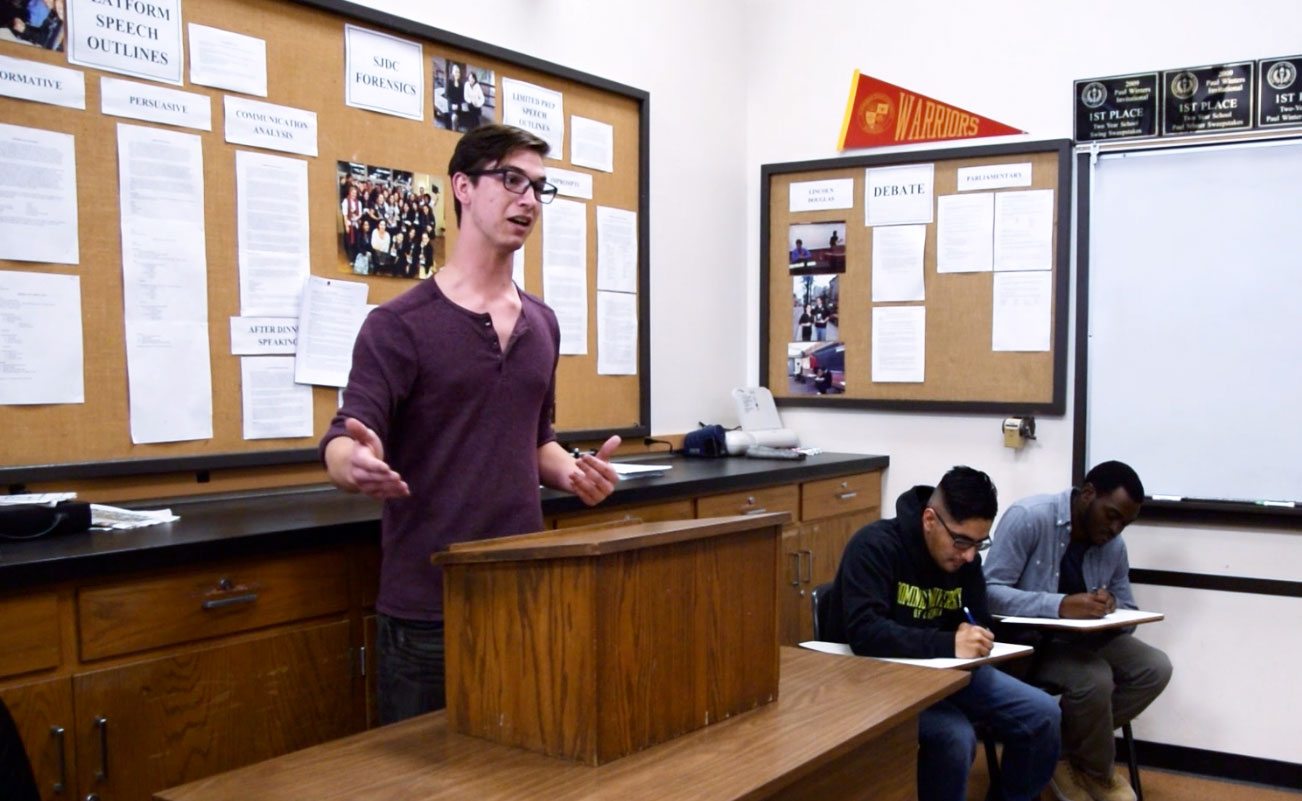

Students can take the class multiple times for a repeating English Credit. We highly recommend first year students to take the class - it provides the foundation for success needed for this activity. The Speech class is titled "Dramatic Literature (Speech)" and the Debate Class is titled "Humanities (Debate). There is no try-out for Speech and Debate (students do have to be academically eligible for extracurricular activities). There are small offset fees regarding occasional overnight tournaments. The only upfront cost for parents is a $35 bus fee as well as the cost for competition/dress clothes. Students are expected to fundraise for our program. We do not have competitions that overlap with major holidays. Students do not need to go to every single tournament, but we find that if they enjoy the activity that they will be going to nearly every single one. The Speech Tournament season lasts from November to March and the Debate Tournament season lasts from October to January. Our tournaments are nearly always on Saturday. The work that we do in class and after school are essentially the "practices" - while the the competitions are our "games." You can imagine that a kid playing soccer would be a bit annoyed to only practice and never get to play the same is true with Speech & Debate. Yes - our program is set up to prepare kids to compete against other schools. In subsequent years it is common for a competitor to "cross-over" to the other side, but the best way for students to succeed is to focus on Speech or Debate. The nature of the two activities is intensive so we always start kids in only one side of the activity.


The round mimics many of the rules of a courtroom allowing for cross-examination as well as challenging their opponents' assertions.

Students and coaches develop arguments as well as cases for 'their side.' Competititons involve students (on their own or in teams of two) trying to convince a judge that their arguments are superior to their opponents.
#Ispeech debate movie
Competing in categories such as Humor, Drama, Poetry, and Prose, students trim down a work of literature, movie script, or play into a ten minute "piece." Students then perform their piece including all of the chosen characters interacting with each other.ĭebate involves a topic - typically a current event - that is researched by the entire nation. Interpretation events remind a lot of individuals of theatre without the props.
#Ispeech debate professional
Public Address events involve professional speaking in event categories such as Extemp (news analysis), Original Oratory (a self-written speech about a societal issue), Informative (a speech involving visual aides regarding a topic of your choice), Radio Broadcasting, as well as Discussion. Speech events are divided into two categories: Public Address and Interpretation. Speech involves invovles more 'performance' aspects than debate. Speech and Debate are one program with two seperate events: What is the difference between Speech & Debate?


 0 kommentar(er)
0 kommentar(er)
